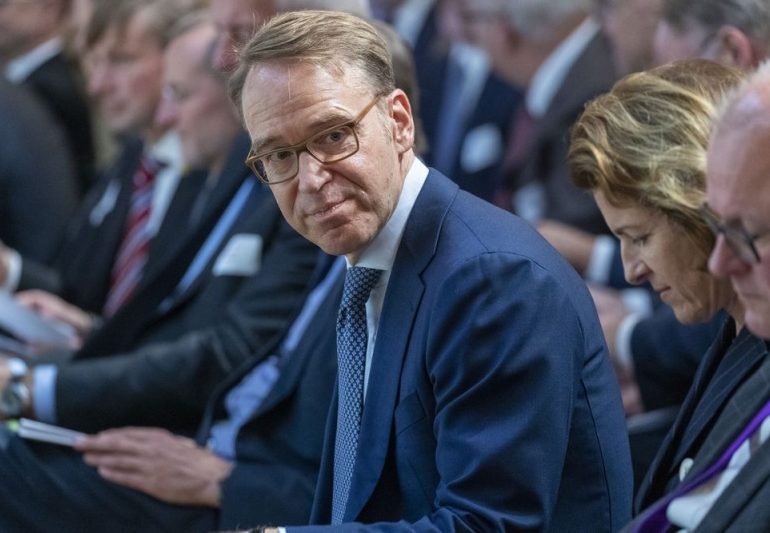A recession in Germany “is now inevitable” as the coronavirus pandemic spreads, European Central Bank Governing Council member Jens Weidmann said in an interview with Die Welt newspaper.
Weidmann, who heads Germany’s Bundesbank, also said the emergency 750 billion-euro ($800 billion) bond-buying program agreed by the ECB this week to calm stress in financial markets doesn’t mean the central bank’s coffers are now empty.
Still, he stressed that central banks are only a support act, and that governments must be at the forefront of the fight against the disease and its economic impact.
“Monetary policy can help, but this time it can’t be the first line of defense,” he told the paper, praising the German government’s “quick and correct” actions.
Some ECB policy makers are unhappy that the bond-buying could require them to raise the limits on how much debt the institution can hold, according to people familiar with the matter.
That could be a controversial move. Set at the start of quantitative easing in 2015, it’s meant to address concerns the central bank would breach European Union law by financing governments.
Weidmann acknowledged that there were differing insights and solutions on offer, but said the ECB Governing Council was unanimous that action was needed “even if we had differences in individual points.”













